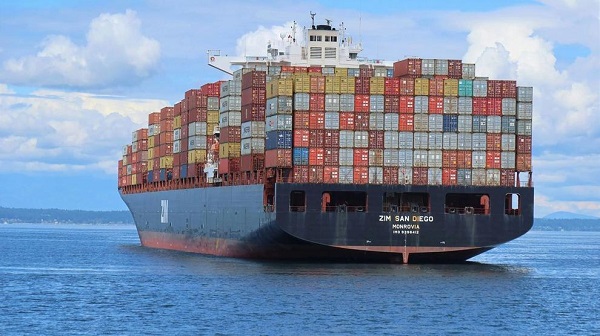Alberta
“The River” water feature chosen by Albertans for the Legislature Grounds

Albertans choose water feature at legislature grounds
Work is underway at the legislature grounds to restore the existing pools and install a new water feature.
Input from nearly 4,000 Albertans in a recent Government of Alberta survey has determined the design of a new water feature for the legislature grounds.
Albertans overwhelmingly supported the design concept “River,” which received more than 65 per cent of the vote.
Here is the announcement from Deputy Premier Nathan Neudorf and Speaker Nathan Cooper:
The survey ran Jan. 12-27 and gave Albertans the chance to choose their favourite of three proposed designs for a new water feature that will be installed at the north plaza of the legislature grounds, replacing the deteriorated terraced wading pools.
Of the other two designs, “Aurora” received 17.1 per cent of the votes followed closely by “Strata” with 17 per cent.
“Thank you to everyone who helped us choose the River design. Nearly 4,000 Albertans responded to the project survey. The feedback and suggestions provided have been crucial in determining the look, feel and future use of this part of our legislature grounds. Your input helps ensure that Alberta’s legislature and grounds will continue to be a destination for Albertans and visitors alike.”
“Alberta’s legislature and grounds are a gathering place for Albertans and visitors from all walks of life. Thanks to this project, the north plaza will have a great new gathering place to enjoy in the summer months. Thank you so much to everyone who took time to submit their feedback. I cannot wait until the new features open in 2024!”
Removing the terraced wading pools and installing the new River area will be part of a larger project to refurbish the water features and improve the north plaza.
Project work at the north plaza is underway and is expected to be completed in 2024.
Quick facts
- The dome fountain and reflecting and wading pools have been closed to the public since 2020 due to the COVID-19 pandemic and mechanical system and public safety issues.
- $20 million is being invested into renewing or replacing the water features and walkways on the Alberta legislature grounds:
- $10 million through the Alberta government’s Budget 2022 Capital Plan
- $10 million through the Investing in Canada Infrastructure Program (ICIP), with $8 million from the Government of Canada and $2 million from the Alberta government
- The Jan. 12- 27 survey posted to alberta.ca received 3,663 responses to the question: Do you have a preferred North Plaza design concept?
- River – 2,413 votes
- Aurora – 628 votes
- Strata – 622 votes
- Reasons Albertans chose the River concept include:
- tranquility
- natural materials
- use of planting/landscape for colour
- more green space, less concrete
- shade provided by trees
- continuous flowing water
- maintained site lines of legislature building
- accessible water animation
- Repairs will be made to the reflecting pool and ornamental dome fountain, replacing piping, updating mechanical and filtration systems, and fixing leaks. The cracked and weathered concrete decking and walkways around all the water features will be replaced. The water barrier on top of the 97 Avenue underpass will also be replaced with a new membrane.
Alberta
Tell the Province what you think about 120 km/h speed limit on divided highways

Alberta’s government is engaging with Albertans on increasing speed limits on rural highways.
Starting Nov. 7, Albertans can share their views on modernizing speed limits on divided highways through an online survey running until Dec. 12. The survey will ask how Albertans view raising the speed limit by 10 km/h on various highways from 110 km/h to 120 km/h.
“Alberta’s government is investigating how to safely increase speed limits on divided highways, and if Albertans support increasing speed limits. We are investing more than $1.5 billion this year alone to improve highway safety and upgrade infrastructure across the province. We want Albertans to be able to drive the speed limit that the highways are designed for. Modern vehicles combined with public awareness mean we can explore higher speed limits.”
The survey will provide Albertans with the opportunity to provide input on which highways they would prioritize having a speed limit increase, their views on restricting commercial trucks from using the far-left lane on highways with three or more lanes and any other feedback that would improve driving experiences on provincial highways.
Following a review of the survey results, Alberta’s government plans to conduct a mini-trial of a 120 km/h speed limit to assess the impacts of higher speed limits on divided highways. The trial will include strong monitoring to assess driving behaviour.
Alberta’s government reminds motorists to slow down and drive to the conditions. Speed limits are set for ideal conditions. When roads are wet, icy or when there is reduced visibility, motorists should slow down.
Quick facts
- Alberta’s provincial highway network includes more than 64,000 lane kilometres of highways, about 11,700 lane kilometres of which are divided.
- The posted speed limits of Alberta’s divided highways range from 100 to 110 km/h, although the posted speed limits on segments passing through cities, towns and First Nation lands can be as low as 50 km/h due to factors such as signalized intersections, pedestrians and local access.
Related information
- The survey is available online.
Alberta
Alberta Announces Members of Class Size and Complexity Committee

A new Class Size and Complexity Cabinet Committee has been struck to address classroom challenges.
Taking action on class size and complexity
Classrooms in Alberta continue to grow and are becoming increasingly complex, and immediate action is needed to address these issues in the public education system. To meet these issues head on, the Class Size and Complexity Cabinet Committee has been created. The cabinet committee will help guide government policy and deploy resources to deal with class sizes and classroom complexity.
“We are committed to providing world-class education, and we’re building schools and funding education at a rate unprecedented in this province. This committee will help us address the concerns of teachers, parents and students around class sizes and complexity.”
Throughout November, Alberta’s government will continue work with school boards to collect data on class sizes and classroom composition. The cabinet committee will use this data to direct resources to the classrooms that need it the most. Starting in January, this data will be made available and released annually.
The Class Size and Complexity Cabinet Committee will be co-chaired by the Premier of Alberta and the Minister of Education and Childcare. It will also include non-voting members representing school boards, administrators and a teacher representative of the ATA. The committee will also hear from school boards, academic experts, teachers, educational assistants, complex needs specialists and parents to inform its decisions and guide this vital work.
“We heard teacher concerns, and we are providing solutions. The Class Size and Complexity Cabinet Committee will help us take immediate action and ensure teachers and students are given the support they need to succeed.”
In June 2025, Alberta’s government established the Aggression and Complexity in Schools Action Team to provide advice on addressing classroom complexity. The report has been received and will be released soon. Over the coming months, the cabinet committee will start rolling out solutions informed by the action team’s recommendations. In addition, the committee will guide the creation of a new inclusive education policy framework.
“The work of this committee will support teachers in responding to the growing complexity in our classrooms. We will ensure that the voices of the contributors to the initial work guide
solutions that truly improve the educational experience for students and the educators who serve them.”
“I appreciate the government’s recognition of the impact of classroom complexity and their commitment to working collaboratively for improvement. Supporting teachers ultimately improves classroom conditions and student outcomes.”
Using data collected, this cabinet committee will also guide Alberta’s government in executing its commitment to hire 3,000 new teachers and 1,500 new educational assistants over the next three years. They will also assist in identifying and prioritizing where new schools and modulars should be built, advancing the government’s commitment to invest $8.6 billion to build 130 new schools, and provide 109 modular classrooms in the growing communities that need them urgently.
Quick facts
- Members of the Class Size and Complexity Cabinet Committee include:
- Danielle Smith, Premier of Alberta
- Demetrios Nicolaides, Minister of Education and Childcare
- Jason Nixon, Minister of Assisted Living and Social Services
- Rick Wilson, Minister of Mental Health and Addiction
- Searle Turton, Minister of Child and Family Services
- Lynnette Anderson, chief superintendent, Edmonton Catholic Schools
- Nicole Buchanan, chair, Red Deer Public Schools
- Marilyn Dennis, former president of Alberta School Boards Association
- Mike McMann, superintendent, Fort Vermilion Schools and President, College of Alberta School Superintendents
- Joanne Pitman, chief superintendent, Calgary Board of Education
- Dr. Elissa Corsi, Alberta Teachers’ Association
- Only Cabinet members are voting members. Additional guests will be invited to attend and share their expertise at the discretion of the chairs.
- School boards will be required to submit data on Alberta classrooms by Nov. 24.
-

 espionage1 day ago
espionage1 day agoU.S. Charges Three More Chinese Scholars in Wuhan Bio-Smuggling Case, Citing Pattern of Foreign Exploitation in American Research Labs
-

 Business2 days ago
Business2 days agoU.S. Supreme Court frosty on Trump’s tariff power as world watches
-

 Business15 hours ago
Business15 hours agoCarney’s Deficit Numbers Deserve Scrutiny After Trudeau’s Forecasting Failures
-

 Business22 hours ago
Business22 hours agoHere’s what pundits and analysts get wrong about the Carney government’s first budget
-

 Justice2 days ago
Justice2 days agoCarney government lets Supreme Court decision stand despite outrage over child porn ruling
-

 International15 hours ago
International15 hours agoKazakhstan joins Abraham Accords, Trump says more nations lining up for peace
-

 Daily Caller2 days ago
Daily Caller2 days agoUN Chief Rages Against Dying Of Climate Alarm Light
-

 COVID-192 days ago
COVID-192 days agoFreedom Convoy leader Tamara Lich to appeal her recent conviction



